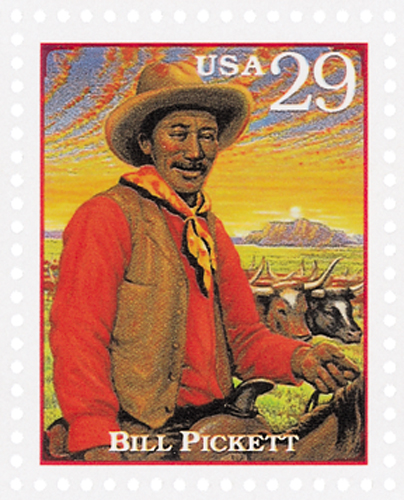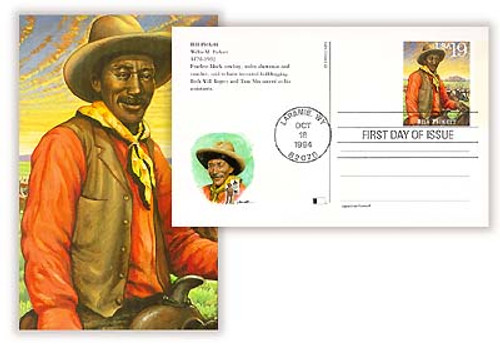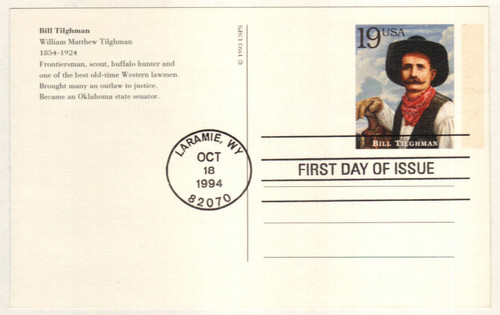Birth Of Bill Pickett
Cowboy and showman Bill Pickett was born on December 5, 1870.
Born in Travis County near Taylor, Texas, Bill Pickett was the second of 13 children. He left school in the fifth grade to work as a ranch hand and was one of the 5,000 early African American cowboys to work on the western ranches. It was during his days as a cowhand that he developed the technique of “bulldogging” – a skill for which he became internationally famous. Galloping alongside a steer, he would seize the animal by its horns and twist its head up until he could sink his teeth into its upper lip, causing the beast to drop to the ground in pain.
Pickett quickly became famous at local fairs for this, among other tricks, and was invited to join the Miller 101 Ranch Wild West Show in 1905. Within two short years, Pickett was performing in elaborate rodeos. A prime attraction, Pickett wrestled steers, while Will Rogers performed tricks with his lariat, and Tom Mix dazzled the crowds with his horsemanship.
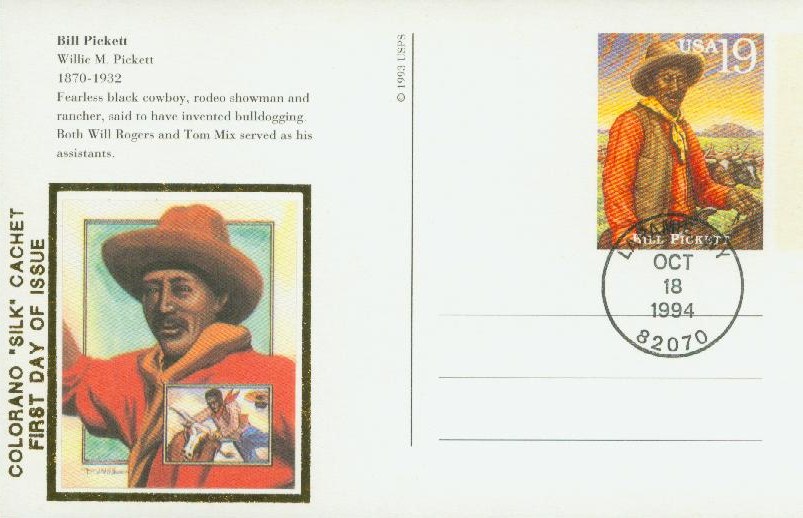
The show toured the nation and eventually reached Madison Square Garden where it took New York City by storm. In Mexico City, it was wagered that Pickett could hold onto a fighting bull for five minutes. Expecting to see Pickett killed, viewers crowded the arena. Miraculously he held on, and after six minutes the crowd conceded Pickett had won. In 1921, Pickett starred in the silent film, The Bull-Dogger. You can watch a clip here. He died in 1932 after being kicked in the head by a bronco.
Sixty-two years after Pickett died, he was at the center of one of stamp collecting’s greatest controversies – the famed Legends of the West error sheet. For decades, a photo believed to be Bill Pickett appeared in a number of publications, and even the National Rodeo Cowboy Hall of Fame. When Pickett was selected as one of the 20 Legends of the West honorees in 1994, this portrait was naturally the one they opted to use.
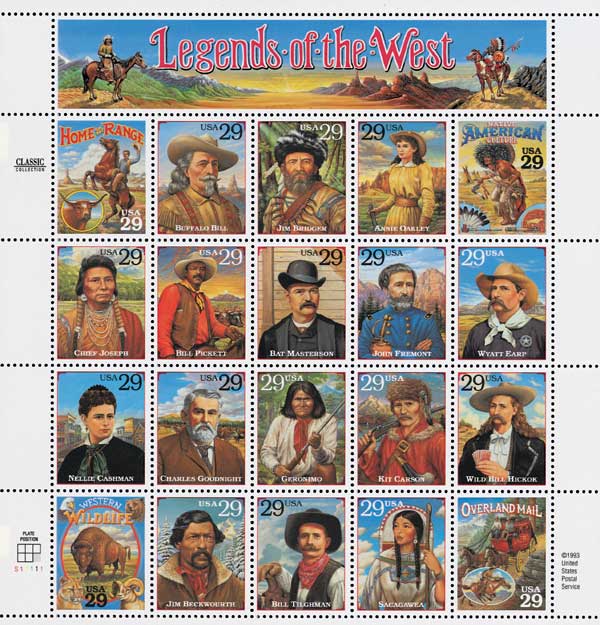
Shortly before the stamps were issued, a radio reporter contacted Frank Phillips (Pickett’s great-grandson) to discuss the stamp with him. While Phillips had lobbied for years to have Pickett honored on a stamp, he didn’t know about the Legends of the West stamps. But when Phillips saw the stamp image he was shocked – the picture was of Ben Pickett, Bill’s younger brother!
Millions of stamps were printed and distributed before it could be verified that the cowboy in the image wasn’t, in fact, Bill Pickett. The U.S.P.S. decided to recall all of the panes, destroy them, and reissue a corrected version. However, 183 original panes from an advance shipment had been sold, creating an instant modern rarity. To recoup their losses, the U.S.P.S. sold 150,000 error panes in a lottery. A new pane featuring an authentic portrait of Bill Pickett was issued to the general public.






